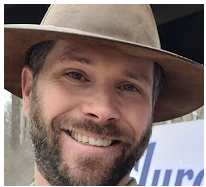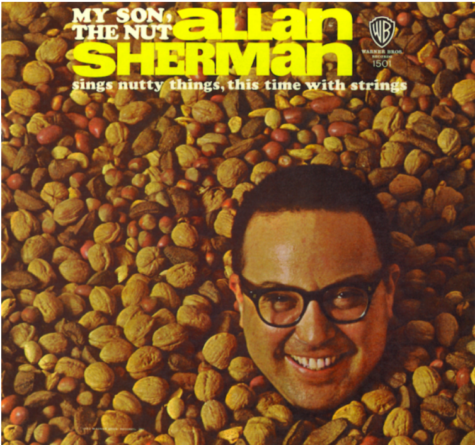Remember (or not!) the classic Allan Sherman song, “Hello Muddah, Hello Faddah,” the letter from an unhappy camper?
Today’s post involves something remarkably similar — except it’s updated. And it’s real. It comes to us from James Frank’s Wild Nature Adventure blog. “Ranger James” started and runs the Lure of the Wild Nature Camps in Catonsville, Maryland.
Smart Devices are Hurting Smart Kids, by Ranger James
As our camp’s Director my job is all about communication. To keep things running smoothly and safely I make a point to check in with our counselors and their campers as often as I can each day. I also talk with parents. A lot.
One particularly gorgeous afternoon last summer, I was hiking to check on the next counselor’s group when I got an unexpected text from a mom. It said simply “I’m here to pick up my kids.”
Early pickups are a routine thing; we just request a 20-minute heads up reminder so we can coordinate. We mark any planned early pickups at morning drop-off, and there wasn’t one on the sheet that day. The staff all confirmed that no one had been told about this one. So, as I doubled back along the trail to get her younger son from the group I’d just left, I phoned to let mom know we would be a few minutes. With some concern I added, “We weren’t expecting this pickup. Is everything okay?”
Why had this mom appeared out of nowhere?
“Oh,” she explained, “it’s just that they were uncomfortable at drop off, so I told the boys I’d come get them if they were having a hard time.”
My concern changed to confusion. I’d just seen her younger son playing with his group. He was really enjoying himself, completely engrossed in building a fort with his new friends. His counselor confirmed that he had been a little sluggish and quiet at the start of the day, but he’d warmed up with the rest of the kids and was fitting right in. As I walked with him up the hill to meet his mom, he told me all about how great the day was turning out. He loved camp, and he didn‘t want to leave his new friends.
I called on the radio to his older brother’s counselor. “How’s he doing?” I asked.
“He’s okay. At the moment he’s a little frustrated because the group doesn’t want to do the same thing he wants to do.”
“How’s he been otherwise,” I asked.
“Otherwise he’s been great.”
When should a parent swoop in?
In my head something still wasn’t lining up. It’s normal for groups of kids (and even adults) to not always agree on a plan. Why was mom really here so early?
When I arrived with her younger son, he told his mom how much fun he’d been having and that he didn’t want to go home. That’s when the truth came out: mom told him she had come because his older brother texted her on his smart watch when his group decided against his idea.
It all made sense now. But it still didn’t.
We broadcast our camp philosophy as “being comfortable being uncomfortable.” We talk frequently about how personal growth and social emotional development are the result of the things we do and don’t do, by design. We intentionally provide campers space to play freely so they can learn and build confidence through self-moderated challenges with minimal adult intervention. We’re there to gently help our campers when needed. It’s all over our website. It’s almost all we ever talk about with parents who are learning about it for the first time, and it’s the thing parents whose kids have attended rave about among friends and family and online reviews.
Undermining kids by being always reachable.
Using his smart watch, the boy was afforded the opportunity to quietly remove himself from working through a simple social challenge with his peers and his counselor. As we talked, mom realized also that she had undermined her younger son’s sense of accomplishment for having overcome his own fears. She knew the problem was the technology. Being digitally attached to her child had taken away his sense of control and increased her own anxiety. As we parted ways, to her son’s dismay she told him to leave the watch at home for the rest of the week.
At the end of a week devoid of his digital connection to his mom, the boy and his younger brother announced they had such a great time that they couldn’t wait to come back again next year.
There are countless studies that show how the technology infiltrating our lives continues to have significantly negative impacts on children’s developing brains. Today’s kids are getting more addicted to screens, further removed from nature, and scared of strangers (we used to call them “neighbors”). These are among the many reasons why we have a no technology policy at camp.
A smart watch may give you a sense of safety. It may help you keep tabs on where your child is at any given moment. But as parents we need to consider how being constantly connected to our growing children can interfere with their ability to learn and manage themselves well through everyday social scenarios. And isn’t that our ultimate goal?

“Ranger James” (James Frank) was raised by a multi-generational family of teachers and librarians. He spent weekends as a child in the woods while his dad read the newspaper nearby and actively ignored him. After two years of teaching in his own classroom, he decided he liked nature’s classroom better. Twenty years in, after developing and managing nature centers and programs on both US coasts, he started Lure of the Wild Nature Camps in Catonsville, Maryland. (Facebook page here.) The program is modeled on forest school and democratic education principles centered on free play with minimal adult intervention. When he’s not actively helping people feel comfortable enough to let their kids play by themselves, he throws copies of Let Grow Co-founder Dr. Peter Gray’s book Free to Learn at them like candy from a parade float.




1 Comment
This is indeed a problem. I have a no cell phone in the ring when I teach riding. You should see the arguments from both parents and kids over not having it for 30 minutes. Or if I don’t immediately answer a call or message because I’m busy and don’t want to interrupt my lesson. People hav3 no attention span left or patience. If something happened and all cell service went down these folks would have a mass breakdown and withdrawal because I truly think they are an addictive drug.